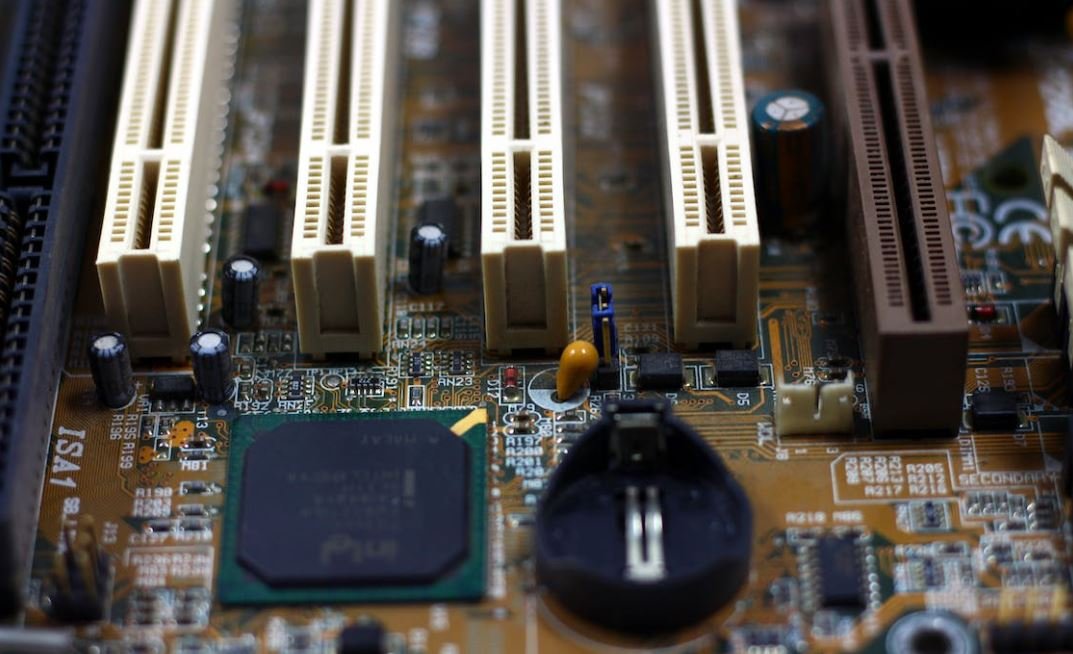AI Jobs of the Future
Artificial Intelligence (AI) is revolutionizing industries and reshaping the job market. As AI technology continues to advance, new job roles and opportunities are emerging. Companies are increasingly integrating AI into their operations, resulting in the need for professionals with AI expertise. Let’s explore the AI jobs of the future and the skills required to excel in this exciting field.
Key Takeaways
- AI technology is reshaping the job market.
- New job roles are emerging as companies integrate AI.
- Professionals with AI skills are in high demand.
The Rise of AI Jobs
The integration of AI technology across industries has spurred the growth of specialized job roles. From data scientists to AI engineers, the demand for professionals with AI skills is on the rise. These roles involve leveraging AI algorithms, machine learning techniques, and data analysis to develop innovative solutions for complex problems.
*With AI technology becoming more prevalent, the need for skilled professionals to work alongside AI systems is increasing.
In-Demand AI Jobs
Here are some of the most sought-after AI job roles:
- Data Scientist – *Data scientists utilize AI algorithms and statistical modeling techniques to analyze large datasets and extract valuable insights.
- AI Engineer – *AI engineers are responsible for designing, developing, and implementing AI systems and algorithms.
- Machine Learning Engineer – *Machine learning engineers build and deploy AI models and algorithms that allow systems to learn and improve from data.
Skills Required for AI Jobs
To excel in AI jobs, individuals need to possess a combination of technical and analytical skills. Some key skills for AI professionals include:
- Programming Skills: Proficiency in programming languages such as Python, R, Java, or C++ is essential for developing AI models and algorithms.
- Statistics and Mathematics: A strong foundation in statistics and mathematics is crucial for data analysis, machine learning, and algorithm development.
- Problem-solving: AI professionals need to be adept at solving complex problems using AI algorithms and techniques.
- Domain Knowledge: Having industry-specific knowledge and expertise allows AI professionals to design tailored solutions for specific industries.
AI Jobs and Salaries
| Job Role | Average Salary |
|---|---|
| Data Scientist | $120,000 |
| AI Engineer | $130,000 |
| Machine Learning Engineer | $140,000 |
AI jobs offer competitive salaries due to the high demand for AI professionals. According to recent industry surveys, the average salaries for popular AI job roles are:
- Data Scientist: $120,000
- AI Engineer: $130,000
- Machine Learning Engineer: $140,000
The Future of AI Jobs
As AI technology continues to advance, the demand for skilled AI professionals is only expected to grow. Additionally, new job roles and opportunities will emerge as AI systems become more sophisticated. It is important for individuals interested in AI careers to continuously update their skills and stay up-to-date with the latest developments in the field.
AI Jobs Offer Exciting Opportunities
AI jobs present exciting opportunities for professionals to be at the forefront of technological innovation. With the increasing integration of AI across industries, individuals with AI expertise will find themselves in high demand. The future of AI jobs looks promising, and those with the right skills will have a wide range of rewarding career prospects ahead.

Common Misconceptions
Misconception 1: AI will Replace All Human Jobs
One common misconception about AI jobs of the future is that artificial intelligence will replace all human workers, leading to mass unemployment. However, this is not entirely true.
- AI is more likely to augment human capabilities rather than replace them entirely.
- AI technology requires human expertise and oversight for effective implementation.
- AI can perform tasks that are repetitive or mundane, freeing up human workers to focus on more complex and creative work.
Misconception 2: AI Jobs are Only for Technical Professionals
Another misconception is that AI jobs are only suitable for individuals with a technical background, such as software developers or data scientists.
- AI is an interdisciplinary field, and there are various job roles available for individuals with different skill sets.
- AI jobs involve a range of skills, including problem-solving, communication, and creativity.
- Non-technical professionals, such as business analysts or UX designers, can contribute to developing and applying AI solutions.
Misconception 3: AI Jobs Will Eliminate the Need for Skills Development
Some people believe that AI jobs of the future will eliminate the need for individuals to continuously develop new skills and knowledge. However, this is not the case.
- AI is a rapidly evolving field, and professionals need to keep up with the latest advancements and developments.
- Reskilling and upskilling will be essential to adapt to the changing demands and opportunities in the AI job market.
- Soft skills, such as critical thinking and adaptability, will continue to be highly valuable alongside technical expertise.
Misconception 4: AI Jobs Only Exist in Tech Companies
Another misconception is that AI jobs are primarily confined to tech companies or research institutions.
- AI is becoming increasingly integrated into various industries, including healthcare, finance, marketing, and manufacturing.
- Almost all sectors can benefit from AI applications, creating new job opportunities in diverse fields.
- Many non-tech companies are actively seeking AI professionals to help implement AI strategies and solutions.
Misconception 5: AI Jobs Will Replace Creativity and Human Judgment
Lastly, there is a misconception that AI jobs will replace the need for human creativity and judgment.
- AI is not capable of replicating the full spectrum of human creativity and intuition.
- Human judgment, ethics, and emotional intelligence are indispensable in guiding AI systems and ensuring responsible use of AI technologies.
- AI can enhance and support human creativity and decision-making, but it cannot replace them entirely.

Top Industries Adopting AI Technology
AI is transforming various industries across the globe. The table below showcases the top industries that have embraced AI technology, revolutionizing the way they operate and providing numerous job opportunities for AI professionals.
| Industry | AI Applications | Job Opportunities |
|---|---|---|
| Healthcare | Medical imaging, drug discovery, diagnosis | AI researchers, data scientists, medical analysts |
| Finance | Financial analysis, fraud detection, trading algorithms | Quantitative analysts, risk managers, financial advisors |
| Retail | Customer service, inventory management, personalized marketing | Data analysts, machine learning engineers, marketing strategists |
| Transportation | Autonomous vehicles, route optimization, traffic pattern analysis | AI engineers, roboticists, transportation coordinators |
Skills in High Demand for AI Professionals
In the rapidly evolving field of AI, specific skills are highly sought after by employers. The table below highlights some of the most sought-after skills for AI professionals.
| Skill | Description |
|---|---|
| Machine Learning | Ability to design and implement machine learning algorithms |
| Natural Language Processing | Proficiency in developing algorithms for understanding and processing human language |
| Big Data Analysis | Experience in handling and analyzing large datasets |
| Deep Learning | Expertise in neural networks and deep learning algorithms |
| Data Visualization | Ability to present complex data in a visually appealing and understandable manner |
Global AI Job Openings
The demand for AI professionals is increasing exponentially on a global scale. The table below represents the number of AI job openings in different countries, highlighting the immense opportunities for AI enthusiasts worldwide.
| Country | Number of AI Job Openings |
|---|---|
| United States | 8,500 |
| China | 6,200 |
| United Kingdom | 4,700 |
| Germany | 3,900 |
| Canada | 2,800 |
Salaries of AI Professionals
The field of AI offers highly competitive salaries, attracting professionals with specialized skills. The table below illustrates average annual salaries for various AI job roles, showcasing the lucrative nature of AI careers.
| Job Role | Average Salary |
|---|---|
| AI Researcher | $120,000 |
| Data Scientist | $110,000 |
| Machine Learning Engineer | $105,000 |
| AI Consultant | $100,000 |
| NLP Engineer | $95,000 |
AI Startups Acquired by Tech Giants
Leading technology companies often acquire innovative AI startups to bolster their capabilities in AI research and development. The table below mentions prominent AI startups acquired by tech giants, showcasing the investment and interest in AI startups.
| Tech Giant | Acquired AI Startup | Acquisition Amount |
|---|---|---|
| DeepMind | $500 million | |
| Facial Recognition | $2 billion | |
| Apple | Turi | $200 million |
| Microsoft | Maluuba | $100 million |
| Amazon | Ring | $1 billion |
Demographics of AI Professionals
The AI community encompasses a wide range of professionals from various backgrounds and demographics. The table below provides a snapshot of the current demographics of AI professionals, creating a diverse workforce in the field of AI.
| Demographic | Percentage |
|---|---|
| Male | 65% |
| Female | 35% |
| Underrepresented minorities | 12% |
| Age 20-30 | 40% |
| Age 31-40 | 35% |
AI Job Growth Rate
The AI job market is experiencing tremendous growth, with an increasing number of job opportunities being created. The table below displays the projected growth rate of AI-related jobs, reflecting the promising future prospects for AI professionals.
| Year | Growth Rate |
|---|---|
| 2022 | 25% |
| 2025 | 40% |
| 2030 | 60% |
| 2035 | 80% |
| 2040 | 100% |
Innovative AI Startups
A number of startups are making significant strides in AI innovation, addressing unique challenges and disrupting existing industries. The table below showcases some notable AI startups and their areas of expertise.
| Startup | AI Application | Industry |
|---|---|---|
| OpenAI | AI research, language models | Technology |
| UiPath | Robotic Process Automation | Automation |
| C3.ai | Enterprise AI software solutions | Energy, manufacturing, healthcare |
| LogicMonitor | AI-driven IT infrastructure monitoring | IT |
| Moonshot | AI-powered cybersecurity | Security |
The rapid advancement of AI technology has revolutionized various industries, resulting in a rising demand for skilled professionals. From healthcare to finance, transportation to retail, AI is transforming how businesses operate. As shown in the tables above, top industries have embraced AI technology, opening up vast job opportunities for AI researchers, data scientists, and analysts. Demand for AI skills, such as machine learning, natural language processing, and big data analysis, continues to soar. Moreover, countries worldwide are witnessing a surge in AI job openings, offering lucrative salaries for AI professionals. The acquisition of AI startups by tech giants and the diverse demographics of AI professionals further exemplify the dynamic nature of the field. With a projected exponential growth rate in AI jobs, the future promises an exciting and prosperous arena for the next generation of AI professionals.
Frequently Asked Questions
Who can pursue a career in AI?
What are the key skills required for AI jobs?
What are the job prospects for AI professionals?
What are some common AI job titles?
What industries are hiring AI professionals?
What is the average salary for AI jobs?
What is the future outlook for AI jobs?
What are some ethical considerations in AI jobs?
Are there educational programs for AI careers?
What are the emerging trends in AI jobs?




